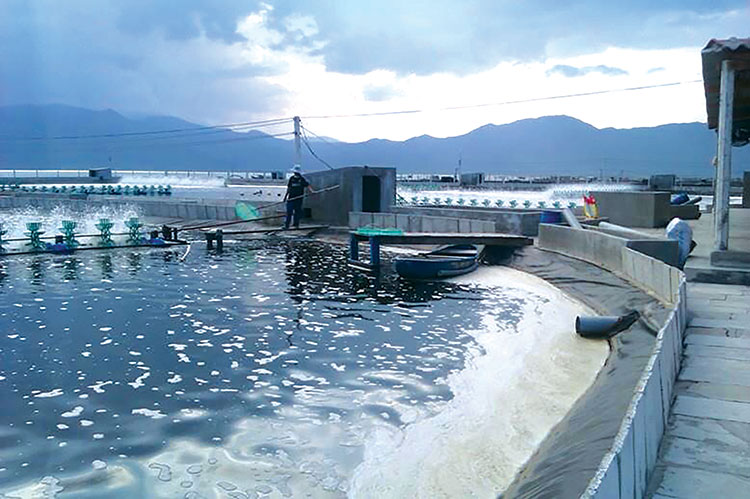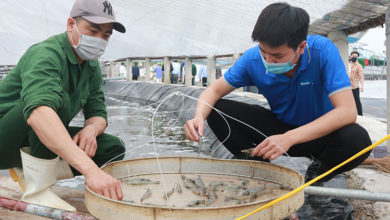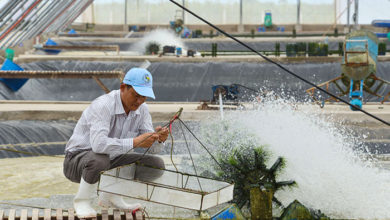Clean clams delivered to processing plants permitted to have maximum defect rate of 0.1%.
In recent years, the clam farming industry in Ben Tre province has seen significant developments, particularly in producing clean clams for export
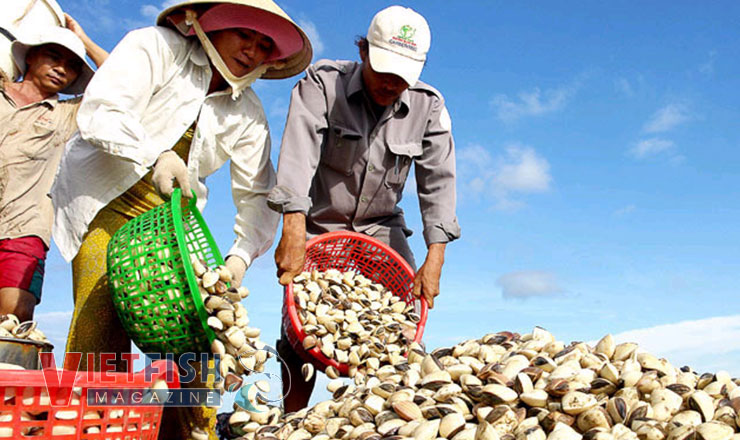
Cooperatives engaged in clam production are mandated to adhere to rigorous standards, allowing for a maximum defect rate of only 0.1%. This commitment to quality ensures that the clams supplied to processing plants meet both food safety requirements and market expectations.
The coastal regions of the Mekong Delta, with their abundant marine resources and mudflats, have become ideal locations for clam farming. Farmers from various provinces, including Ben Tre, Kien Giang, Tien Giang, and Tra Vinh, have successfully designated areas for this purpose. In Ben Tre specifically, clam farming has a rich history. Nguyen Van Buoi, Deputy Director of the Provincial Department of Agriculture and Rural Development, shared that local farmers initially operated on a small scale and without formal organization.
To address these challenges, the provincial agricultural sector has encouraged farmers to collaborate by forming cooperatives. This initiative aims to foster sustainable production, harvesting, and management of clam farms. However, issues remain, particularly regarding the sale of clams, which often relies on collecting agents, resulting in unstable pricing.
Recognizing these challenges, the Ben Tre Department of Agriculture and Rural Development, in collaboration with local governments, is developing the clam farming sector further. They are implementing plans to establish a comprehensive value chain that aligns with production conditions and market demands. Cooperatives receive training and guidance to create stable and sustainable clam farming areas, while members are encouraged to follow Marine Stewardship Council (MSC) standards for producing clean clams destined for export.
Ben Tre’s clam farming area achieved MSC certification from the Marine Stewardship Council in 2009, making it the first fishery sector in both Vietnam and Southeast Asia to attain this recognition. In a testament to its commitment to sustainability, the province received a second MSC certification in 2020 and is set to be recertified for the third time in 2024.
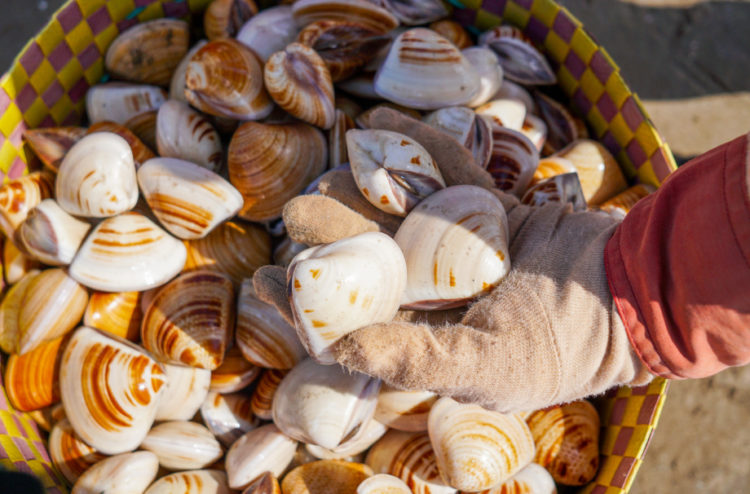
To ensure that clams produced meet stringent food safety and MSC certification standards, cooperative members are required to follow established procedures closely. Nguyen Van Quyet, Director of the Thanh Loi Fisheries Cooperative in Thanh Hai commune, noted that obtaining MSC certification has led to increased interest from businesses in purchasing clams, resulting in more stable sales for cooperative members.
Farmers have become more aware of the importance of quality production, particularly in ensuring the cleanliness of sand within the clams. This commitment to quality has shifted the cooperative’s sales approach from relying on agents to selling directly to processing plants. After harvesting, clams undergo a rigorous natural sand filtration process aimed at achieving a 99.9% cleanliness standard. The processing plant permits a defect rate of only 0.1%, and any clams with sand content of 0.2% or higher face a purchase price reduction of 1,500 VND per kilogram. This strict adherence to quality standards has raised the consciousness of cooperative members, enabling Ben Tre clams to successfully penetrate demanding export markets over the years.
In addition to targeting international markets, members of the Thanh Loi Fisheries Cooperative have established a clean clam farm and are in the process of registering for One Commune One Product (OCOP) certification to enhance the value and income of local farmers.
The Ben Tre Department of Agriculture and Rural Development reports that the province has over 7,000 hectares of potential clam farming area, with around 4,200 hectares currently in use. Seven cooperatives dedicated to clam harvesting have been established, providing employment for over 20,000 cooperative members. Each year, the region produces more than 8,000 tons of clams, generating revenue exceeding 200 billion VND, which significantly contributes to the economic development of coastal communities.
Looking ahead, the Ben Tre Department of Agriculture and Rural Development aims to sustain and further develop the clam industry, particularly by supporting cooperatives in effective and sustainable production and management practices. Plans include developing a comprehensive value chain involving regulatory bodies, cooperatives, businesses, and scientific experts.
Moreover, a “Clean Clam Soaking” model will be established with technical support from processing plants. This initiative ensures that clams are thoroughly cleaned after harvesting before being sent to processing facilities, which will ultimately enhance their market value.
VFM


